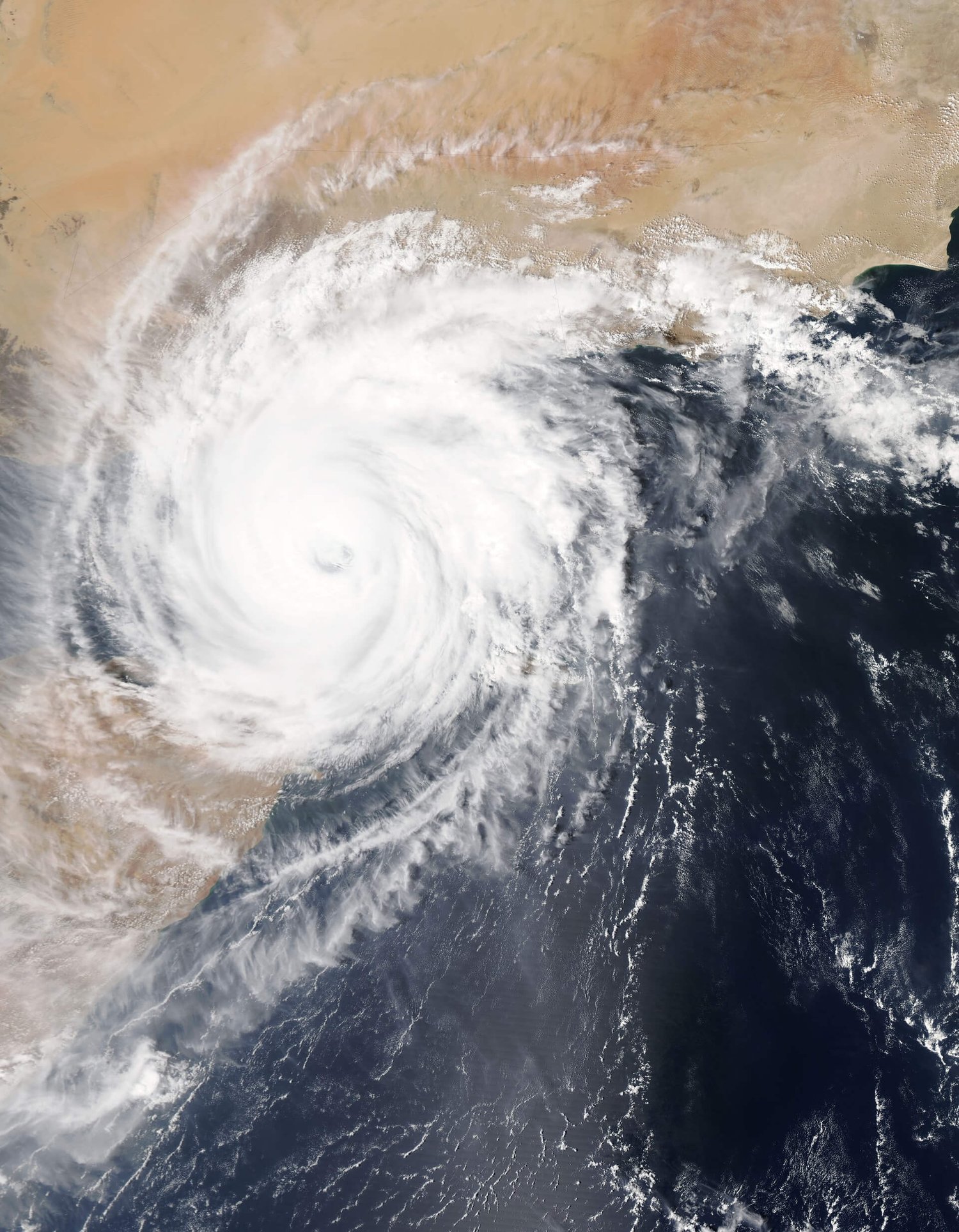First, determine if you’re in an area that is susceptible to tropical storms by doing some quick online research or checking your local weather sites. From there, see if you’re in what’s considered a hurricane evacuation area by contacting your local government or emergency management office, or visiting the evacuation site website. Also, online hazard and vulnerability assessment tools are available for information gathering.
By understanding your risk, you’ll have a better idea of how to stay safe during storm season.
How do I know when a hurricane is coming?
Meteorologists usually have their general predictions for the hurricane season as early as April but can predict a hurricane’s path three to five days in advance. Once a hurricane hits, conditions last an average of 12 to 18 hours, but up to 24 for slow-moving ones.
Hurricanes can be deceiving. The day before a hurricane it could be sunny – without a cloud in the sky. That’s why you must pay close attention to weather reports, specifically from National Oceanic and Atmospheric Administration (NOAA) weather radio or warnings from local authorities, so you’re up to speed on all hurricane happenings.
A hurricane is headed my way. Now what?
There are some basic things you should do when a hurricane is on the horizon.
If you haven’t already, put together an emergency kit [DA1] with essentials such as a gallon of water per person, nonperishable food and a first aid kit. Also, review your family emergency plan, make any updates, and ensure all family members are on the same page. In addition, find the appropriate online NOAA radio station and pay close attention to updates.
Also, consider where you’ll go if you need to evacuate. Options include a hotel, a family or friend’s home, or an evacuation shelter. If you have time, practice your evacuation plan to avoid any confusion if and when a quick exit must happen.
Part of your pre-planning should include thinking through any medical needs of you or your family members. Take stock of any medication or special equipment that should come with you in the event of an evacuation, and have that list easily accessible. Additionally, mentally plan for how you’ll evacuate family members with mobility issues to prevent any panic during a real event.
What can I do to protect my home?
The National Weather Service provides guidelines for strengthening your home. They include:
- Keeping trees around your lot trimmed
- Boarding up windows to protect them from flying debris
- Bringing loose outdoor items such as patio furniture inside
- Securing all doors – including the garage
- Moving your car inside or to another safe location
And don’t forget about important contents inside your home. Keep insurance policies, documents, and other valuables in a safe-deposit box, which will decrease the chance they’ll get damaged during a hurricane or a resulting flood. Also consider taking pictures of important documents on your phone as a backup in case something does happen.
What should I do in the event of an evacuation?
If you’ve been ordered to evacuate, give yourself enough time to pack the essentials and let your friends and family know you’re leaving home. Listen to – and follow – instructions by local officials – don’t assume you can ride out a storm just because you’ve prepared your home.
If an evacuation isn’t ordered, how do I stay safe?
Depending on where you’re located and the severity of the storm, you may not be required to evacuate. You may still choose to, but if you don’t want to leave, or don’t have the means to, you can take steps to stay safe at home.
When the storm is about to hit, move to a small interior room on the lowest level of your home, such as a closet or hallway. Put as many walls between you and the outside as possible, and stay away from windows, skylights or glass doors. When the eye of the storm passes over, it may seem as though you’re out of the woods, but hang tight inside your home because hurricane force winds will be coming from the opposite direction.
Also, tornadoes can sometimes form after hurricanes, so continue listening to weather reports and updates from your local officials before leaving safety.
Do I need special insurance to cover hurricane damage?
This is a good question to consider prior to any potential hurricanes, so you have one less thing to worry about during the often-confusing post-hurricane period.
There isn’t actually hurricane insurance, but parts of your homeowners policy may cover damage related to hurricanes. Damage from a hurricane is usually caused by what’s known as “covered perils.” Your personal property coverage may depend on your individual plan, while other structures are typically covered up to 10% of the primary dwelling limit.
However, if the damage was the result of flooding, and you don’t have special flood insurance, then you could run into problems. What’s more, if you live in a high-risk area, insurance companies might limit or withhold wind damage coverage. If it’s not included as part of your home insurance policy, you can seek out a special endorsement. Reach out to your insurer for more details if you’re unsure what’s in your policy. And, while you’ve got them there, ask about additional living expense coverage: If you’re forced from your home due to a covered peril, your insurer may pay some of the expenses you incur from being displaced.
And what about car insurance?If you have comprehensive coverage, your car insurance will cover hurricane damage, but that’s only if you have that coverage in advance of a hurricane’s arrival. That’s because insurers often restrict new policies and coverage changes leading up to and during storms.
Now what?
Recovery from any type of natural disaster is a gradual process, and hurricanes are no exception. It’s going to take time to get back to normal, especially if you’ve experienced damage or displacement. So, be patient with yourself, and don’t be afraid to ask for help from friends, family and your community. Find a list of post-hurricane resources here.


